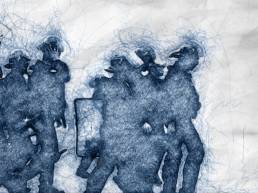Artificial Intelligence
Discussion Prompt: Will AI solve the “information overload“ challenge for intelligence agencies?
In a 1993 white paper, the US Scientific and Technical Intelligence Committee (STIC) spelled out the need for analytical “paradigm shifts” to cope with the rapidly expanding “global production of information”, widely dubbed ‘the information overload’. 25 years later, self-learning algorithms, commonly referred to as Artificial Intelligence, are often heralded as that very technological revolution, suited to provide for either a “new kind of security” or a new age of government surveillance, or both. Against this backdrop, we try to understand the current and projected role of artificial intelligence in the work of intelligence agencies. Is it the technological breakthrough agencies have been seeking? Has it propelled us into a new intelligence governance dimension, where we require specific and updated regulation and control? Or is it a continuation of technology support systems which simply aid decision makers?
AI and national security: learn from the machine, but don’t let it take decisions
How intelligence agencies can use AI in an effective and accountable way.
Another layer of opacity: how spies use AI and why we should talk about it
Thanks to the AI hype, for perhaps the first time ever, the wider public might get to monitor and address technological & operational transformation in Signals Intelligence as it unfolds.
Predictive policing: positivism is not enough to rule our complex world
The key concern with artificial intelligence is not (only) its potency but its inability to seek justice.
Augmentation as artifice: a Palantir look at AI
How the big data analytics company focuses on supporting rather than displacing human decision-making.
GCHQ embraces AI, but not as a black box
AI can augment human creativity and help keep societies safe, but only if issues of bias and transparency are adequately addressed.





